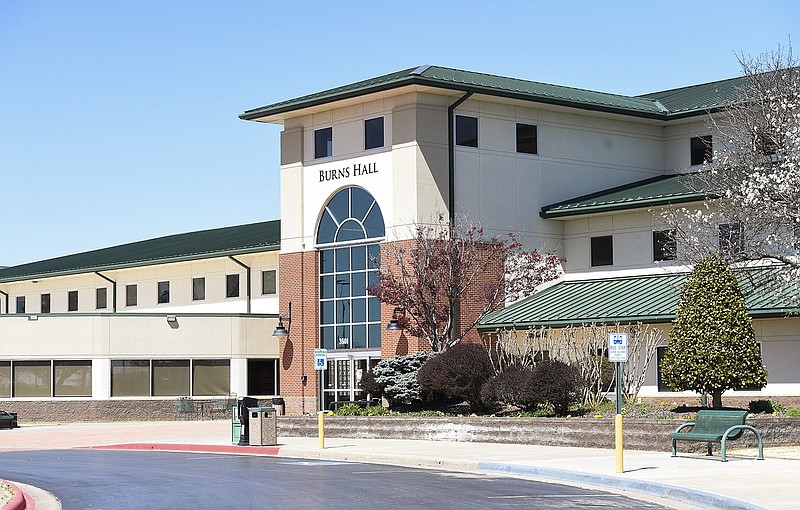BENTONVILLE -- Northwest Arkansas Community College trustees discussed, then dropped, a proposal to ask voters again for a property tax increase.
"It's too soon," board member Joe Spivey of Rogers said during debate on whether to put an increase before voters on Nov. 13.
Voters rejected a proposed 0.4-mill increase on May 9 by a margin of 1,175 (56%) to 911 (44%). The college's taxing district covers the Bentonville and Rogers school districts, with patrons in those districts getting to vote in millage elections. The board considered a second election in one year at a meeting Monday.
Discussion made it clear any motion to hold another election would pass only with a split board vote, board member Ron Branscum of Rogers pointed out. Running another election so soon after the last was already risky, he said. Going into the effort without unified support from the board would cut the measure's chances even further, he said.
The board dropped debate without a motion for a vote shortly after Branscum's remarks.
The issue came up because November would be the last good opportunity for such an election until 2025, said Grant Hodges, the college's chief of staff and executive director of communications, who presented the proposal to the board.
Next year is a presidential election year, Hodges said. Those years see heavy voter turnout for races with other candidates and issues, he said. Voters coming to an election with other issues on their minds tend to vote against tax increases, whatever the proposal's particulars, he said. Running another election only six months after the one in May is a disadvantage, Hodges told the board, but November is the last chance for a clean, tax-measure-only election until 2025.
The need for more money for salaries to attract and retain employees at the college and for more classes to fill local workforce needs did not go away after the defeat in May, board member Carolyn Reeves argued. Other members agreed with Reeves but said trying again so soon could look like refusal to accept the voters' decision the first time. Asking again could harden opposition to tax increases in the future, they said.
The tax increase would cost an average property owner in the district only $25 a year, Reeves said. Tax supporters did not make the low cost of the increase clear enough in the last election, she said. Hodges said earlier in the presentation the previous campaign did reveal lessons a second effort could benefit from.
No increase is small enough to escape the notice of voters suffering from inflation, Spivey said.
A mill rate, or millage, is one-thousandth of a dollar and is equal to $1 for every $1,000 of assessment. The proposed 0.4-mill increase in May, had it been approved, would have raised the college's millage rate from 2.6 mills to 3, bringing the college an additional $1.8 million per year in revenue, according to officials.

